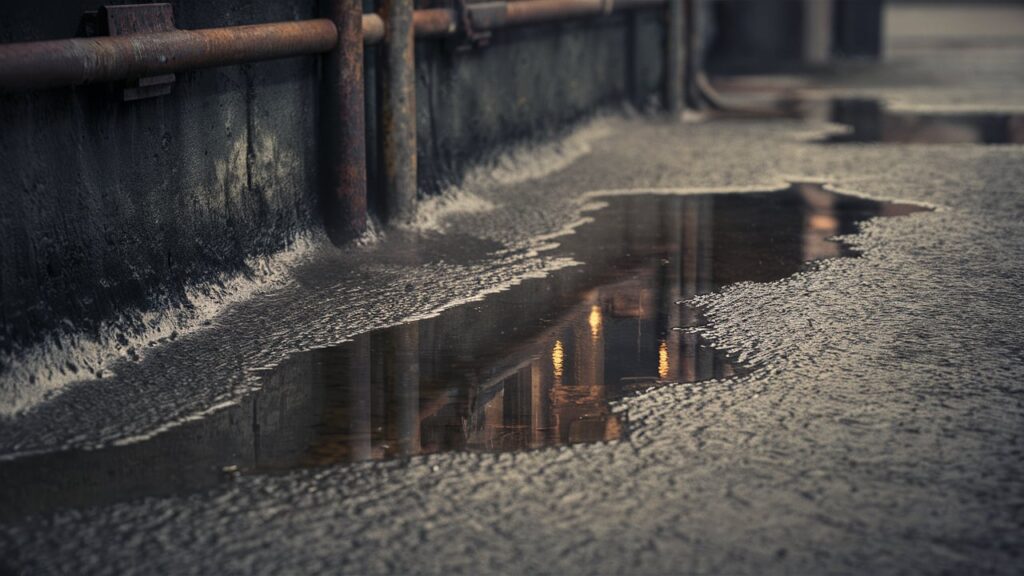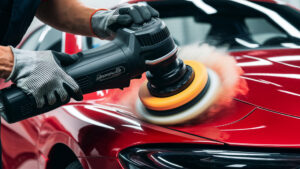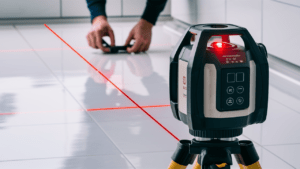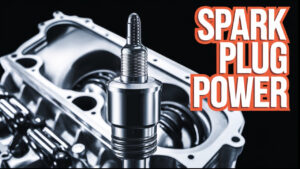Detecting a water leak under concrete can be tricky. It often leads to unseen damage.
Water leaks under concrete surfaces can cause significant problems. They might weaken the foundation of your house or even lead to mold growth. Identifying these leaks early can save you from costly repairs and health issues. This guide will help you understand the signs of a water leak and how to locate it.
Recommended Best Water Leak Detector 2025
| Recommendation | Product |
| Best Overall | YoLink Smart Home Starter Kit |
| Popular Choice | Govee WiFi Water Sensor |
| Best Value | GoveeLife WiFi Water Ieak Detector |
| Best Budget | Fansitc Water Leak Detectors |
| Another Excellent Pick | Winees WiFi Water Leak Detector |
By the end, you’ll know how to handle this issue effectively. Stay with us as we dive into practical tips and methods for detecting water leaks under concrete.
Signs Of A Water Leak
Detecting a water leak under concrete can be challenging. Several signs can help identify the issue early. Being aware of these signs can save time and prevent further damage.
Unusual Water Bills
One of the first signs is an unusual spike in water bills. A consistent increase in your water bill without increased usage might indicate a leak. Compare your current bill with previous months. If the difference is significant, it’s time to investigate further.
Damp Or Moldy Spots
Damp or moldy spots on your floors or walls can also signal a water leak. These spots often appear in specific areas and may have a distinct musty odor. Keep an eye out for:
- Discolored patches
- Wet or damp areas
- Visible mold growth
Addressing these signs promptly can prevent extensive damage and maintain a healthy environment in your home.
Common Causes Of Leaks
Water leaks under concrete can cause big problems. Knowing the common causes helps in early detection. Below are two main reasons that often lead to these leaks.
Pipe Corrosion
Pipe corrosion is a major cause of leaks. Over time, metal pipes can rust and deteriorate. This is especially true for older homes. When pipes rust, small holes form. Water seeps out and causes leaks under the concrete. These leaks are hard to detect and can lead to major damage.
Corrosion happens faster in certain conditions. High levels of minerals in water speed up the process. Also, if the pipes were not installed correctly, they might corrode faster.
Foundation Shifts
Another common cause of leaks is foundation shifts. The ground under your home can move. This movement puts stress on the pipes. When the foundation shifts, pipes can crack or break. This leads to leaks under the concrete.
Several factors can cause foundation shifts. Changes in soil moisture levels, earthquakes, and even heavy traffic can cause the ground to move. When the ground moves, it affects the foundation and the pipes.
Tools For Leak Detection
Detecting a water leak under concrete can be challenging. Specialized tools can help pinpoint the problem. In this section, we will discuss some of the most effective tools for leak detection.
Moisture Meters
Moisture meters are essential for detecting water leaks. They measure the moisture level in concrete. Here’s how they work:
- Insert the probes into the concrete surface.
- Read the moisture level on the display.
- Identify areas with high moisture content.
High moisture levels indicate a possible leak. Moisture meters are easy to use. They provide quick, reliable results.
Acoustic Listening Devices
Acoustic listening devices are another key tool. They detect the sound of water leaks. Here’s a breakdown of their functionality:
- Place the device on the concrete surface.
- Listen for the sound of water movement.
- Pinpoint the exact location of the leak.
These devices are highly effective. They are especially useful for detecting leaks in large areas. Acoustic listening devices can save time and money.
Using the right tools is crucial for effective leak detection. Moisture meters and acoustic listening devices are two of the best options available. They help identify leaks quickly and accurately.
Diy Leak Detection Methods
Detecting a water leak under concrete can be tricky. Yet, some DIY methods can help you find the problem without professional help. These methods are simple and can save money and time. Here are some easy techniques you can try at home.
Visual Inspection
Begin with a visual inspection. Look for wet spots on the floor or walls. Check if there are any cracks or stains. These can be signs of a leak. Also, watch for mold or mildew growth. They thrive in moist conditions. A musty smell can also indicate a hidden leak.
Water Pressure Test
A water pressure test can help detect a leak. First, turn off all water sources in your home. Then, check the water meter. Write down the number you see. Wait for a few hours. Make sure no one uses any water during this time. After the wait, check the water meter again. If the number has changed, there might be a leak. This simple test can show if water is escaping from the pipes.
Professional Leak Detection Services
Detecting a water leak under concrete can be challenging. Professional leak detection services help homeowners identify and fix leaks efficiently. These services use advanced tools and techniques to locate leaks without causing damage to your property.
When To Call A Professional
Water leaks can cause significant damage if not addressed quickly. Here are some signs that you should call a professional:
- Unexplained increase in your water bill
- Wet spots on the floor
- Sound of running water when no taps are open
- Cracks in the concrete
- Mold or mildew growth
If you notice any of these signs, it’s time to contact a professional leak detection service. Early detection can save you from costly repairs.
Choosing The Right Service
Not all leak detection services are the same. Here are some factors to consider when choosing the right service:
| Factor | Description |
|---|---|
| Experience | Choose a company with years of experience in leak detection. |
| Technology | Ensure they use advanced tools like thermal imaging and acoustic sensors. |
| Reviews | Check online reviews and testimonials from previous customers. |
| Cost | Get quotes from multiple companies and compare prices. |
| Guarantees | Look for a service that offers a satisfaction guarantee. |
By considering these factors, you can find a reliable leak detection service. This will ensure your home remains safe and free from water damage.
Repairing A Water Leak
Water leaks under concrete can cause serious damage. Detecting the problem early is vital. Once detected, immediate action is essential to minimize further damage. Repairing a water leak requires careful planning and precise execution.
Temporary Fixes
Temporary fixes can provide quick relief until a permanent solution is arranged. These fixes help control the leak and reduce damage.
- Sealant: Apply a waterproof sealant to the affected area. This helps to temporarily stop the leak.
- Epoxy: Use epoxy to fill cracks or gaps. This provides a temporary barrier against water.
- Pipe clamps: For visible pipes, use clamps to stop the flow. This is a quick and effective solution.
Permanent Solutions
Permanent solutions ensure the leak is fixed for good. These methods provide a long-term answer to the problem.
- Pipe replacement: Replace the damaged section of the pipe. This is often the most effective solution.
- Re-routing pipes: Reroute pipes to avoid the damaged area. This method can prevent future leaks.
- Slab repair: In some cases, repairing the concrete slab is necessary. This involves professional help to ensure a thorough job.
- Leak detection systems: Install a leak detection system. This helps monitor for future leaks and alerts you early.
Both temporary and permanent solutions have their place. Temporary fixes provide immediate relief, while permanent solutions offer long-term security. Choose the method that best suits your needs and situation.
Preventing Future Leaks
Preventing future leaks under concrete is crucial to avoid costly repairs. By taking proactive steps, you can maintain the integrity of your plumbing. Here are some effective ways to prevent future leaks.
Regular Maintenance
Regular maintenance is key to preventing future water leaks. Schedule routine inspections of your plumbing system. This helps identify potential issues early. Look out for signs of moisture or mildew. A small leak can lead to bigger problems if ignored. Regular checks can save you from major headaches.
Inspect the water pressure regularly. High water pressure can strain pipes, leading to leaks. Use a pressure gauge to monitor the levels. Aim for a pressure between 40-60 psi. Adjust the pressure if needed to prevent damage.
Clean drains and pipes frequently. Blockages can cause water to back up and leak. Use a plumber’s snake or natural cleaners to keep pipes clear. This simple step can prevent many plumbing issues.
Upgrading Plumbing
Old pipes are more likely to leak. Consider upgrading your plumbing system. Replace old pipes with modern, durable materials. Copper or PEX piping are good options. These materials are less prone to corrosion and breaks.
Install a leak detection system. These devices alert you to leaks early. Some systems can even shut off the water automatically. This prevents extensive water damage and costly repairs.
Insulate your pipes. Temperature changes can cause pipes to expand and contract. This stress can lead to leaks over time. Insulation helps maintain a stable temperature. This reduces the risk of leaks.
Costs And Considerations
Detecting a water leak under concrete can be a challenging task. It is essential to understand the costs and considerations before taking action. This section will discuss repair costs and insurance coverage related to such leaks.
Repair Costs
The cost of repairing a water leak under concrete varies. Factors such as location, severity, and necessary repairs influence the price. Here is a table summarizing the typical costs:
| Type of Repair | Estimated Cost |
|---|---|
| Basic Leak Detection | $150 – $400 |
| Concrete Slab Removal | $500 – $1,000 |
| Pipe Repair/Replacement | $300 – $1,500 |
| Concrete Restoration | $400 – $2,000 |
These costs may add up, depending on the complexity of the issue. It is crucial to get multiple quotes from professionals.
Insurance Coverage
Insurance coverage for water leaks under concrete depends on the policy. Some policies cover the damage, while others may not. Here are some points to consider:
- Check your policy: Review your homeowner’s insurance policy to see if it covers water leaks under concrete.
- Document the damage: Take photos and keep records of the damage for your insurance claim.
- Contact your insurer: Speak with your insurance agent to understand your coverage options.
Knowing your insurance coverage can help reduce out-of-pocket expenses. Always be prepared by understanding your policy details.

Frequently Asked Questions
How Can I Detect A Water Leak Under Concrete?
To detect a water leak under concrete, look for damp spots, mold, or an increased water bill. Use a moisture meter or hire a professional with specialized equipment.
What Are The Signs Of A Water Leak Under Concrete?
Signs include damp or wet spots, mold growth, a musty smell, and unexplained increases in your water bill.
Can A Plumber Detect A Leak Under Concrete?
Yes, plumbers have specialized tools like acoustic sensors and thermal imaging cameras to accurately detect water leaks under concrete.
How Do Professionals Find Leaks Under Concrete?
Professionals use methods like acoustic listening devices, thermal imaging, and moisture meters to pinpoint the exact location of leaks under concrete.
Conclusion
Detecting a water leak under concrete isn’t easy. But it’s possible with patience. Listen for water sounds. Watch for damp spots. Check your water bill. Use a moisture meter. Call a professional if needed. Early detection saves money and prevents damage.
Stay vigilant. Regular checks can prevent major issues. Keep your home safe and dry. Don’t ignore the signs. Act quickly to avoid bigger problems. By following these tips, you can protect your property.








